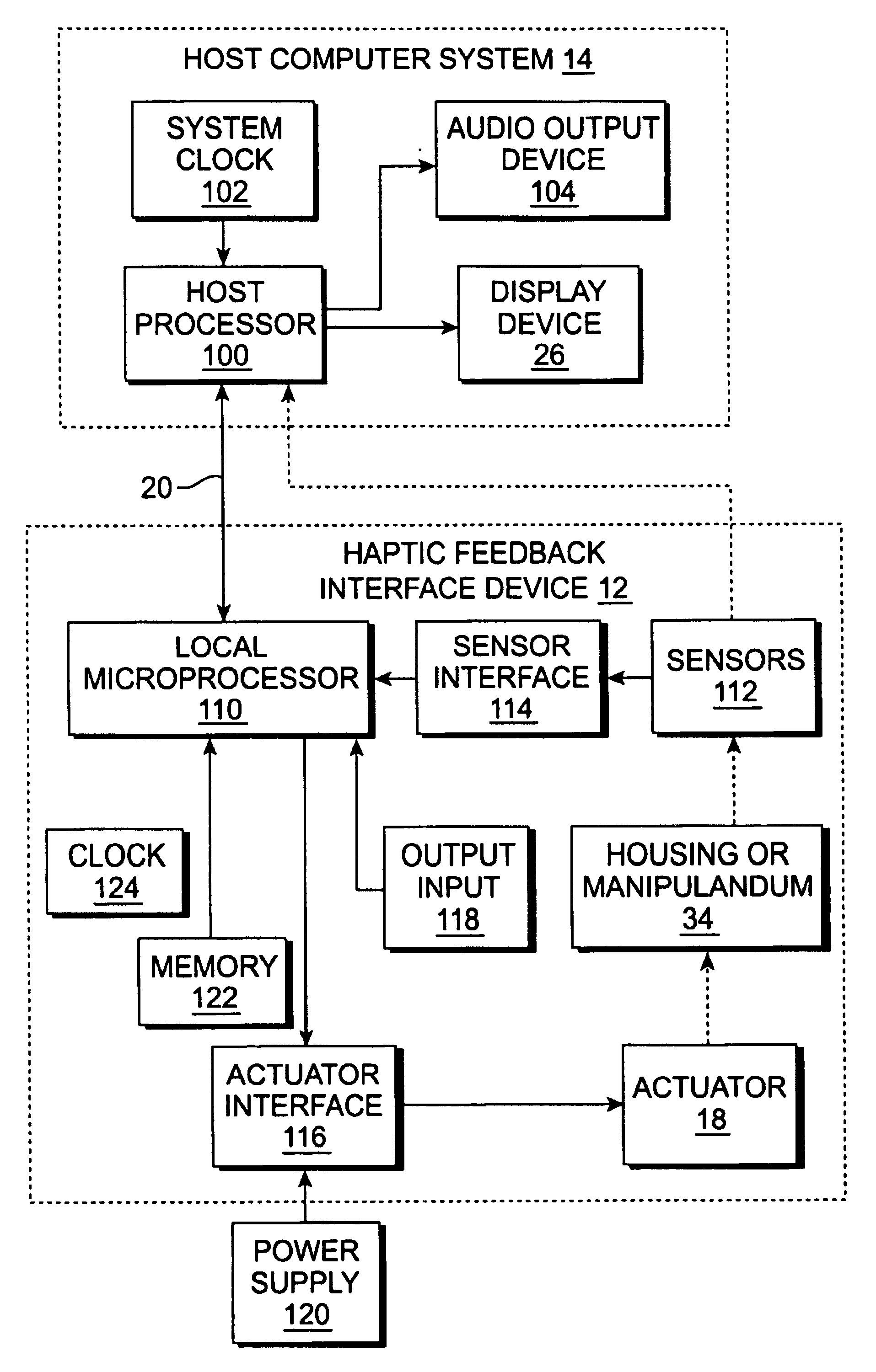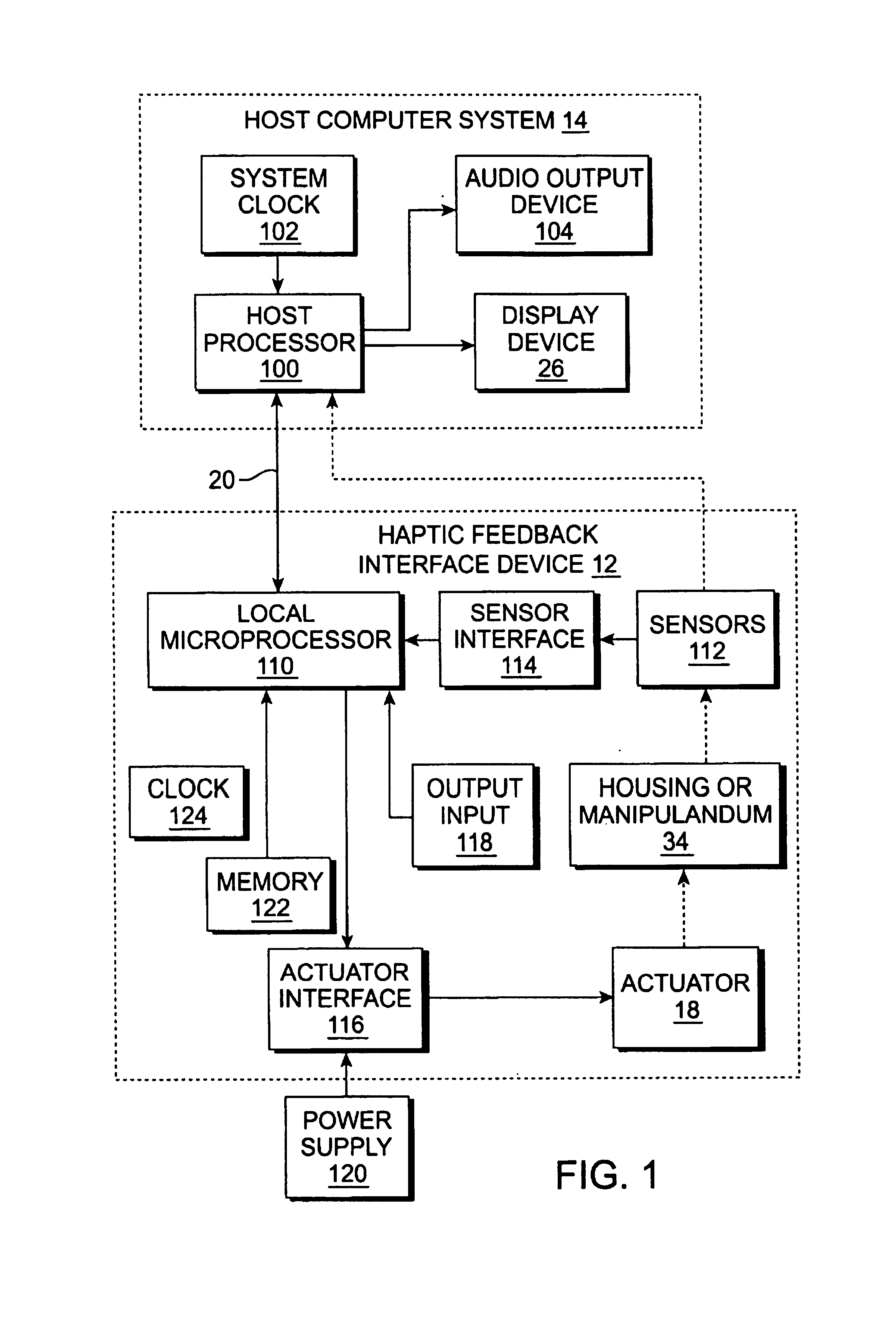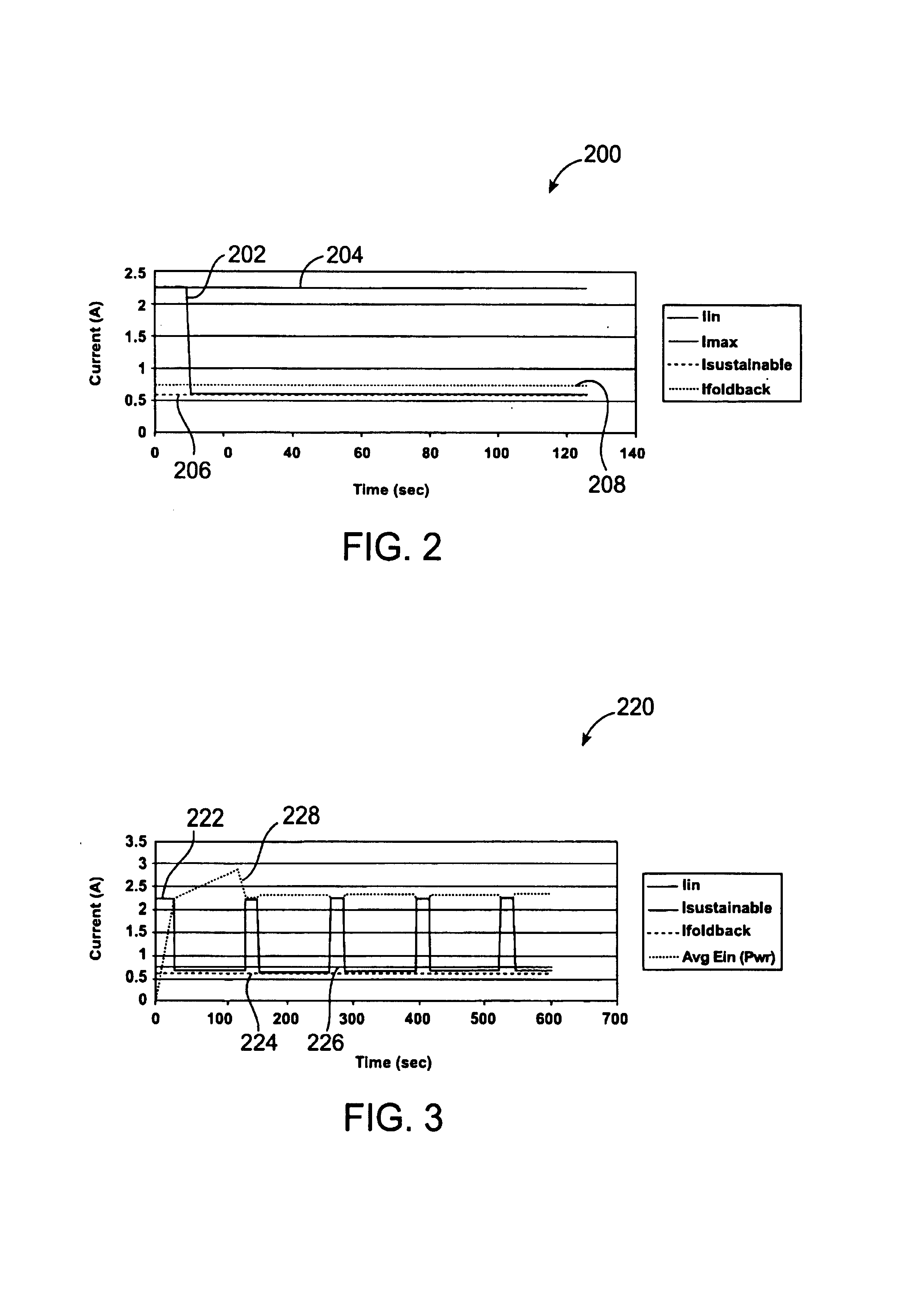Actuator thermal protection in haptic feedback devices
a technology of haptic feedback and actuator, which is applied in the direction of mechanical pattern conversion, instruments, relays, etc., can solve the problems of excessive heat in the actuator, the actuator(s) of the device, and the potential to heat up quickly, so as to reduce the maximum allowable current level, and high fidelity
- Summary
- Abstract
- Description
- Claims
- Application Information
AI Technical Summary
Benefits of technology
Problems solved by technology
Method used
Image
Examples
Embodiment Construction
[0020]FIG. 1 is a block diagram illustrating a haptic feedback system suitable for use with the described embodiments of the present invention. The haptic feedback system includes a host computer system 14 and interface device 12.
[0021]Host computer system 14 preferably includes a host microprocessor 100, a clock 102, a display screen 26, and an audio output device 104. The host computer also includes other well known components, such as random access memory (RAM), read-only memory (ROM), and input / output (I / O) electronics (not shown).
[0022]Host computer 14 can be a personal computer or workstation and may operate under any well-known operating system. Or, host computer system 14 can be one of a variety of home video game console systems commonly connected to a television set or other display, such as systems available from Nintendo, Sega, Sony, or Microsoft. In other embodiments, host computer system 14 can be a “set top box” which can be used, for example, to provide interactive t...
PUM
 Login to View More
Login to View More Abstract
Description
Claims
Application Information
 Login to View More
Login to View More - R&D
- Intellectual Property
- Life Sciences
- Materials
- Tech Scout
- Unparalleled Data Quality
- Higher Quality Content
- 60% Fewer Hallucinations
Browse by: Latest US Patents, China's latest patents, Technical Efficacy Thesaurus, Application Domain, Technology Topic, Popular Technical Reports.
© 2025 PatSnap. All rights reserved.Legal|Privacy policy|Modern Slavery Act Transparency Statement|Sitemap|About US| Contact US: help@patsnap.com



